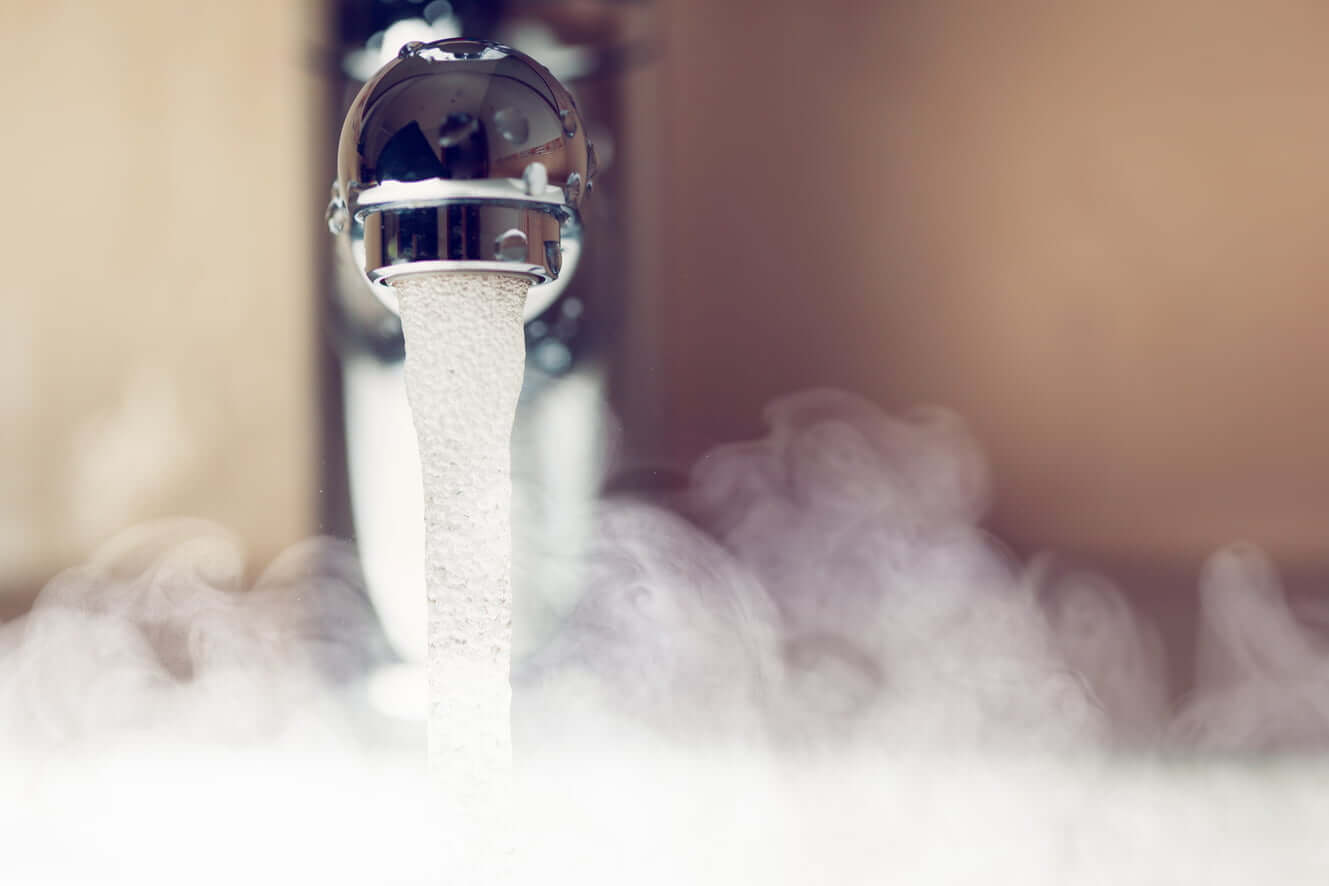

Multiple researches have shown how much water to drink daily: 6-8 glasses of water per day (or the corresponding quantity of fluids nutrients by food and drinks) – roughly 1.2 litres is the average estimation suggested by the British Nutrition Foundation and other authoritative UK entities.
As highlighted in their researches, the water requirements can vary between individuals depending on different factors, including:
– age;
– sex;
– weight / height;
– level of activity / type of work;
– climate;
– health conditions.
| Age Group | Gender | Weight / Height | Body Mass Index | Activity Level / Type of Work | Climate | Health Conditions | Recommended Water Intake (ml/day) | Source |
|---|---|---|---|---|---|---|---|---|
| Neonates (0-1 year) | M/F | – | – | – | – | Healthy | 700-800 | NHS |
| Preschool Children (1-5 years) | M | 13-19 kg / 2ft 5.8in (75.7 cm) (approx)- 3ft 7in (109.2 cm) (approx) | 14-16 kg/m² | Light | Temperate | Healthy | 1300 | Water UK |
| Preschool Children (1-5 years) | F | 12-18 kg / 2ft 5.2in (74.1 cm) – 3ft 6.5in (107.9 cm) | 14-16 kg/m² | Light | Temperate | Healthy | 1150 | Water UK |
| School-Age Children (6-12 years) | M | 20-30 kg / 3ft 9.5in (115.5 cm) – 4ft 10.7in (149.1 cm) | 17-20 kg/m² | Moderate | Temperate | Healthy | 1900 | NHS |
| School-Age Children (6-12 years) | F | 18-28 kg / 3ft 9.5in (115.5 cm) – 4ft 11in (149.8 cm) | 17-20 kg/m² | Moderate | Temperate | Healthy | 1700 | NHS |
| Adolescents (13-18 years) | M | 40-60 kg / 5ft 1.5in (156.2 cm) – 5ft 9.2in (175.7 cm) | 21-25 kg/m² | Light-Moderate | Temperate | Healthy | 2400 | BDA Inc. |
| Adolescents (13-18 years) | F | 35-55 kg / 5ft 1.7in (156.7 cm) – 5ft 4.2in (163 cm) | 21-25 kg/m² | Light-Moderate | Temperate | Healthy | 2000 | BDA Inc. |
| Young Adults (19-30 years) | M | 60-80 kg / 5ft 9.5in (176.5 cm) – 5ft 9.8in (177.4 cm) | 22-25 kg/m² | Moderate | Temperate | Healthy | 3000 | EFSA |
| Young Adults (19-30 years) | F | 50-70 kg / 5ft 4.2in (163 cm) – 5ft 4.3in (163.4 cm) | 22-25 kg/m² | Moderate | Temperate | Healthy | 2500 | EFSA |
| Middle-Aged Adults (31-50 years) | M | 70-90 kg / 5ft 9.5in (176.5 cm) – 5ft 9.8in (177.4 cm) | 25-30 kg/m² | Moderate | Temperate | Healthy | 3000 | Mayo Clinic |
| Middle-Aged Adults (31-50 years) | F | 50-70 kg / 5ft 4.2in (163 cm) – 5ft 4.3in (163.4 cm) | 25-30 kg/m² | Moderate | Temperate | Healthy | 2200 | Mayo Clinic |
| Old-Aged Adults (51-65 years) | M | 70-90 kg / 5ft 9.5in (176.5 cm) – 5ft 9.8in (177.4 cm) | 25-30 kg/m² | Moderate | Temperate | Healthy | 2800 | Mayo Clinic |
| Old-Aged Adults (51-65 years) | F | 50-70 kg / 5ft 4.2in (163 cm) – 5ft 4.3in (163.4 cm) | 25-30 kg/m² | Moderate | Temperate | Healthy | 2300 | Mayo Clinic |
| Over 65 Adults (+65 years) | M | 70-90 kg / 5ft 9.5in (176.5 cm) – 5ft 9.8in (177.4 cm) | 25-30 kg/m² | Moderate | Temperate | Healthy | 2600 | Mayo Clinic |
| Over 65 Adults (+65 years) | F | 50-70 kg / 5ft 4.2in (163 cm) – 5ft 4.3in (163.4 cm) | 25-30 kg/m² | Moderate | Temperate | Healthy | 2100 | Mayo Clinic |
This table includes data from multiple scientific studies, including:
NHS, Water UK, BDS Inc., EFSA
Is it dangerous to drink too much water?
Water comprises 45–75% of your body weight and plays a key role in heart health, weight management, physical performance, and brain function. We all need water to survive, but there are many different opinions on exactly how much water to drink daily.
Some people believe that we should be drinking up to 3 litres of water per day, however this will vary from person to person, as drinking too much water can be dangerous. It can cause a condition called Hyponatremia, which is caused by a disruption in the electrolyte balance in your body. Symptoms may include nausea, confusion, and in some cases, death (if you are concerned about your water intake, always seek medical advice).
How many glasses of water should I be drinking per day?
As mentioned above, the NHS recommended daily fluid intake for an adult is 6-8 glasses per day – this includes tea, coffee, milk, and juice. You also take in water from your food, from sources such as fruit and vegetables. Cucumbers are made up of 96% water – the highest water content of any food.
Try to drink a glass of water every 1-2 hours during the day, to ensure that you stay hydrated and can perform at your best. Dehydration can cause a reduction in brain function, as well as affecting your energy levels. You could also snack on fruits and vegetables throughout the day, such as cucumber and carrot sticks.

How can I increase my daily water intake?
If you are not drinking enough water each day, you may feel sluggish and tired. You might find it difficult to concentrate at work, affecting your performance. If you are struggling to drink enough water throughout the day, we’ve put together some tips to help you to reach the right quantity of how much water to drink daily.
1. Carry a reusable water bottle
Having a reusable water bottle in your bag will encourage you to fill it up and sip on the water throughout the day. You can also keep track of how much you are drinking, and you could even make a note of how you’re feeling throughout the day. If you’re out and about, you can download the Refill App to find somewhere to fill up your water bottle.
2. Eat more fruit and vegetables
Fruit and vegetables are full of nutrients, and contain a large percentage of water. Try incorporating more fruit and veg into your diet, such as cucumbers, tomatoes, watermelon, and strawberries. All of these are great sources of water and will help you to naturally increase your water intake.
3. Swap out sugary drinks for water or squash
Drinking sugary drinks is not only bad for your health, but it can cause a sugar crash a few hours after drinking it. This can make you feel lethargic and irritable, affecting your concentration at work. Try swapping it for water, or if you like flavoured drinks, you could have some fruit squash/cordial instead.
If you’re looking for ways to increase your water intake, installing a drinking water tap could be just the thing you need. Check out our range of 3 way taps below, and discover how they can improve the taste of drinking water in your home.


